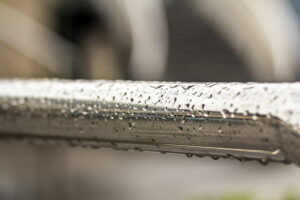
If you’re dealing with old plumbing, then it might be time to upgrade—there are some common problems with old plumbing that are worth worrying about.
Most of us take our plumbing system for granted until a problem arises. -Seems pretty natural. However, when it comes to older plumbing systems, the risks of various unpleasant issues occurring are inherently elevated. And so, in older homes, whatever degree of preventative action is available is certainly worth taking.
Here are some of the most common problems associated with old plumbing.
Lead Piping
If your home was built before 1986, it may have a lead piping system. This was simply standard procedure before the dangers of lead exposure were better understood. Lead pipes aren’t immediately harmful; rather, the trouble starts when the pipes begin to corrode, constantly shedding tiny bits of lead into drinking water. Symptoms of short-exposure lead toxicity can cause (e.g.) joint and muscle pain, headaches, mood disorders, high blood pressure… Regular, long-term ingestion of lead-contaminated water is commensurately more severe. Young children are especially, as exposure on this scale can cause profound developmental delays and/or disabilities.
Hard Water
If your system was made with other now-outdated materials—galvanized steel, for example—you may have what’s referred to as “hard water.” This denotes a higher presence of minerals, calcium, and magnesium in particular. -Not ideal for cleaning. Hard water can cause “soap scum” buildup and damage many types of fabrics and equipment.
Sewage Line Damage
If you have an older plumbing system and long-standing trees nearby, there may already be damage to your sewage line. The roots of any sizable trees standing within about six feet of that line can easily break through older pipes made from now-warped or comparatively brittle materials. And, if there was anything remotely funny about toilets and sewage, I might be inclined to say that it really stinks to find yourself suddenly in this particular type of pipe breakage. Anyhow… Tree roots are strong and stubborn; they’re liable to add insult to injury by growing through and entirely clogging the pipe, potentially setting the scene for a sewage backup in, say, your kitchen. This is a situation best avoided, if possible.
Closing Thoughts
If you have an older plumbing system, it is important to have it inspected regularly by a professional plumber. They can spot potential issues before they become major issues and replace old weak pipes with strong ones. Replacing an older plumbing system can remove a potential source of lead exposure and the health problems that come with it. Don’t wait for a sudden, extremely unpleasant problem—or even a dangerous one—to have your plumbing system inspected. You’d be far better off calling a professional plumber as soon as possible; fix any problems in the making or otherwise having the assurance that your home’s plumbing is functional, stable, and, most importantly, safe.
Maintain Your Plumbing With Help from Mahon Plumbing
If you still have more questions regarding your plumbing, we here at Mahon Plumbing are here to help. We have been serving the wider Baltimore area since 1994, so we have 25 years of experience to back up our fantastic service! Call us at our Baltimore location at 410-766-8566 or our Pasadena location at 410-636-7944. Be sure to keep up with us on social media by following us on Facebook or Twitter.
